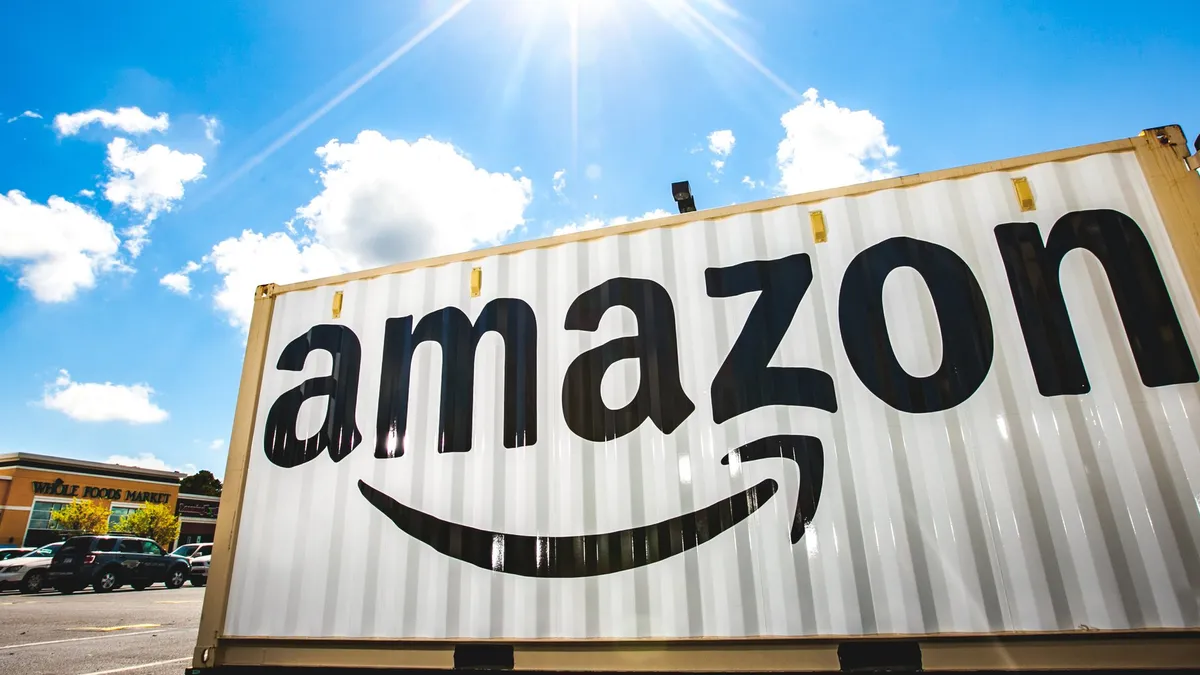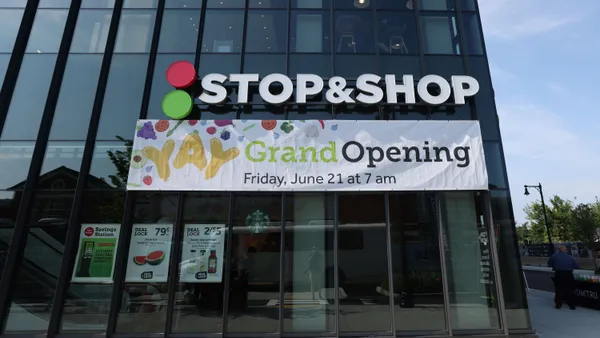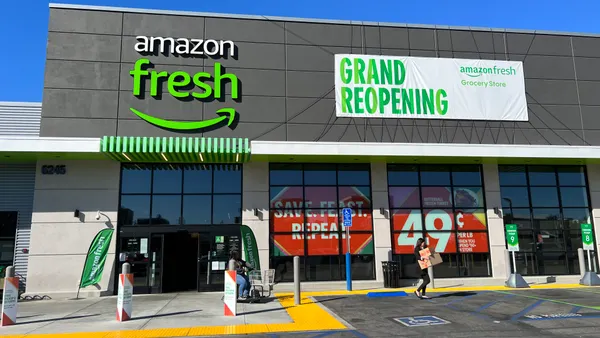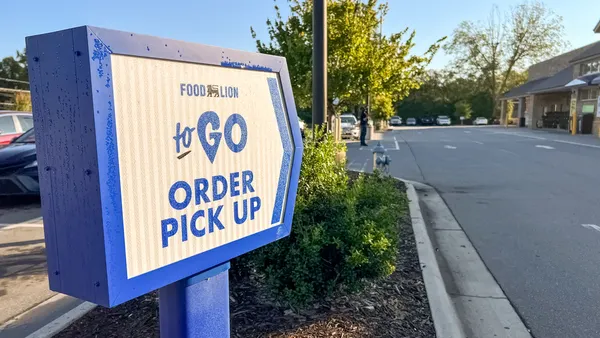Dive Brief:
- Amazon is pushing for more manufacturers to create exclusive, private label products to sell only on its site, according to The Wall Street Journal. Companies making everything from mattresses to artificial sweeteners to coffee have already launched brands only available through Amazon.
- After finding that it was too expensive for Amazon to develop exclusive brands independently, the company started pushing established food and beverage manufacturers to take on the R&D work, a source told the Journal. Nutrition brand GNC was one of the first to launch products through the program Amazon started last year.
- Private-label has always presented a risk to manufacturers because it limits sales to a single outlet. But Amazon has worked to sweeten the deal with promises of rapid-fire customer feedback, marketing support and prominent position in search results.
Dive Insight:
Private label products and exclusives are not new to the world of retail, but they’re growing in popularity. Predictions suggest the market could reach $220 billion by 2020, driven by a need for retailers and manufacturers to differentiate themselves. The market for private label products has grown more than top performing brands, driven by customer perceptions that private label products are higher quality, less expensive and smart choices, according to a Nielsen study.
How will this market play out in the digital world? Amazon is trying to find out.
For retailers, private label deals give customers a reason to come back and differentiate from the competition. The benefit to manufacturers can be less clear-cut. On one hand, an exclusive can help build a brand following as a company grows and provide an opportunity to test and refine products on a more limited scale. But when a product does well, these private label deals can prove a frustrating limitation since there is only one retail option.
Currently, Amazon has more than 100 of its own in-house brands across product categories, which it has sought to highlight and promote over established national alternatives. For food and beverage manufacturers scrambling to keep apace of the transition to online shopping, an exclusive deal with Amazon presents an attractive option: access to customers and a door to the e-commerce world as traditional retail falters.
As brick-and-mortar transforms, Amazon-exclusive deals present an opportunity for brands to tap into the booming e-commerce space as more consumers turn to online shopping for food and grocery items. The vitamin and nutrition company GNC has struggled to keep up as more customers have moved to online shopping, seeing revenues drop from $2.68 billion in 2015 to $2.45 billion in 2017, and closing 200 of its U.S. stores last year. Its long-term plan include closing 700-900 of its remaining 4,300 stores in the U.S. and Canada during the next three years. GNC executives have said there are higher costs when selling exclusively through Amazon, but they are hopeful that access to a digital market will make up the difference. It's unclear how much price or margin negotiating power brands have with Amazon.
Alongside exclusive deals with existing brands, Amazon launched its own private label food brands in the past few years, including Happy Belly, Mama Bear and Wicked. But it hasn't been easy to keep these brands popular. Happy Belly, a snack food brand, grew rapidly after its launch in 2017. But then sales declined more than 40% year-over-year in 2018, outpaced by other options from established brands. Going forward, Amazon appears more interested in partnering with existing brands to create exclusive deals, rather than maintaining its own food and beverage labels.
Brands that launch exclusive products for Amazon, not only get faster customer feedback, marketing support, and revenue from the sales, but they also can appear at the top of search results. With the site's estimated 550 million products, that can give these products a lot of leverage. However, private label in the digital world can present a regulatory problem. Amazon can — and reportedly does — use sales data to promote its own in-house products over others. Brick and mortar retailers do the same on shelves, but given Amazon’s dominance in the e-commerce market, some have expressed concern. International regulators have begun to crack down on exclusive and private label deals already. But despite criticism from some progressive lawmakers, domestic regulatory action is hardly likely.














